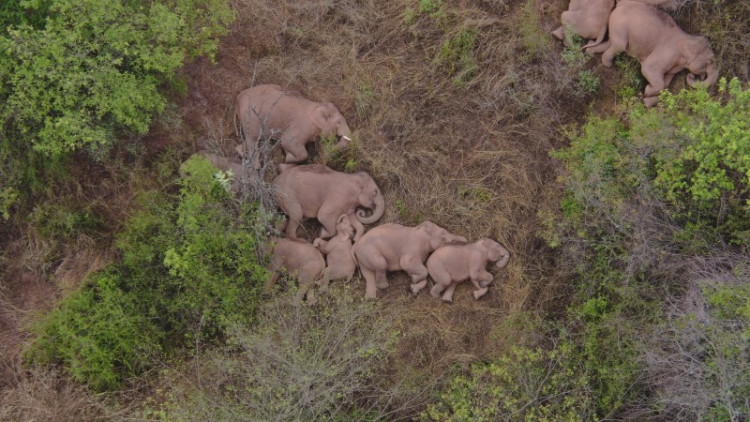As China's wandering herd of elephants continues to baffle scientists and captivate international audiences, a team of experts is already drawing up plans to build a national park to restore these wild animals' habitat.
Ming Qingzhong, a university professor in Yunnan, in the past month has been monitoring the loose herd that has traveled some 300 miles north from their original habitat. Together with his team from the Tourism and Culture Industry Research Institute at Yunnan University of Finance and Economics in Kunming, they have proposed building an Asian elephant national park, aiming to better manage and restore the giant creatures' habitats.
"Such a national park urgently needs to be built. It is time that our proposal attracted much-needed public attention," Ming said.
A detailed plan for restoring elephant habitats and managing human communities in the region, including roads, public facilities, woods and farms, has been developed.
Elephants are known to travel short distances. This herd, on the other hand, has been plodding its way through China for more than a year. They are believed to have begun their journey last spring from Xishuangbanna National Nature Reserve in the country's southwest, near the borders of Myanmar and Laos.
They began to migrate north, and in recent months, elephants have been spotted in a number of villages, towns and cities.
The Asian elephant, which is classified as endangered on the International Union for Conservation of Nature's Red List of Threatened Species, enjoys Class-A protection in China-the same level as the giant panda.
Before the 1970s, the species faced several threats, including an increase in human population, diminished forested areas and illegal hunting.
According to the Yunnan Provincial Forestry and Grassland Administration, the numbers have increased from around 170 in the 1970s to around 300 in recent decades as a result of concerted protection efforts.
"Building a national park will fundamentally resolve the human-elephant conflict. Many people ask where these elephants are heading or where they should remain when they have finished roaming. A national park is the best destination," Ming said.






